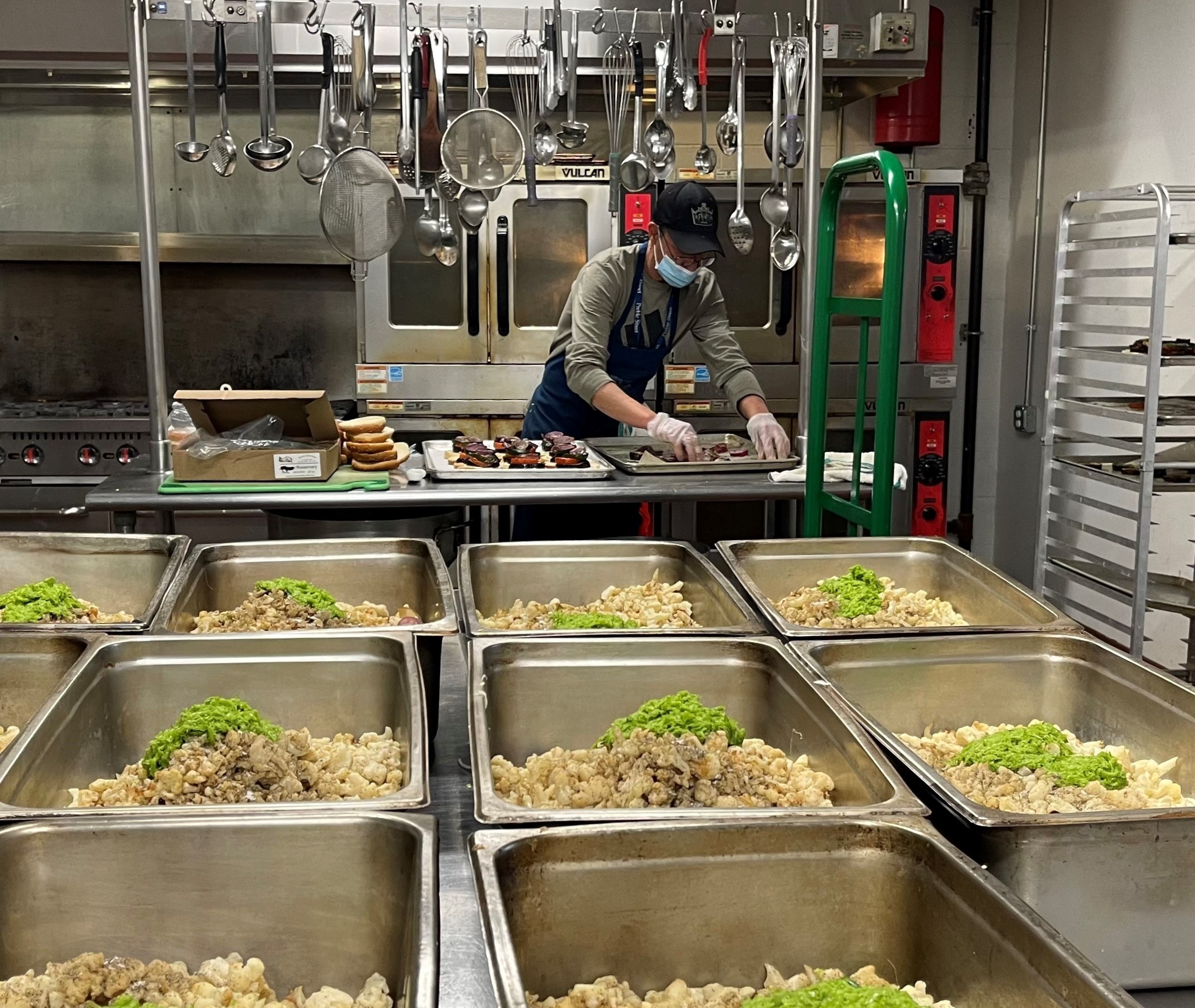Food production and energy use are two of the largest contributors to global greenhouse gas emissions and climate change. While climate change affects all of us, people living in poverty are most vulnerable to its impacts, including rising temperatures, natural disasters, and potential global threats to food security. Recognizing the potential outsized impact on socially vulnerable populations, Preble Street seeks to combat climate change whenever possible. At our innovative Food Security Hub (FSH) in South Portland we are addressing urgent food security needs while investing in more sustainable and energy-efficient methods of food production and distribution.
Looking at the big picture, one way that we can make a big impact on the environment is through investments in more sustainable and energy-efficient equipment and building infrastructure at the Food Security Hub. From LED lighting throughout the building to investing in solar energy to more efficient refrigeration and other appliances, there are many opportunities that we plan to implement that will help us to increase energy efficiency, reduce our impact on the environment, and save money on energy costs.
Reducing and recycling food waste is important, and as the Food Security Hub plans continue to progress, we continue to look at new ways to process and preserve donated produce for use year-round. One key piece of machinery that we hope to add is a food dehydrator which will allow us to extend the life of food, reduce waste, and maintain the quality of food including color, texture, nutrients, and essential ingredients.
The team at the Food Security Hub and our volunteers are continuously raising the bar in terms of the nutrition, freshness, quality, and deliciousness of the food they create each day.
Right now, before the expansion of the Food Security Hub is complete, the Preble Street Food Programs team is able to make approximately 2,000 nutritious and delicious meals each day in the current space. Once the Food Security Hub is complete, we anticipate being about to create up to 10,000 meals per day.
A focus on sustainability is already built into each day. The Food Programs staff is excited about working to reduce food waste and get the most out of each ingredient that comes through the door. There is an incredible team of chefs that look at the ingredients that we have and are able to turn them into exciting offerings. “It’s a challenging and unique situation where we’re preparing meals in the way that a farm-to-table restaurant often does and seasonally changing based on the donations and what’s coming out of farms,” says Natalie Varrallo, Food Programs Director. “We are always looking for projects that will help get people excited and passionate about the work they are doing. Once that happens, they start noticing other little things that you can make adjustments for in terms of sustainability as well.”
Besides the nutritional value of locally-grown produce, the partnerships we have developed with local farms and waste management agencies keep massive amounts of food waste from entering Maine’s landfills and turn it into nutrient-rich compost instead. We also send some to local pig farmers whose livestock are big fans!

